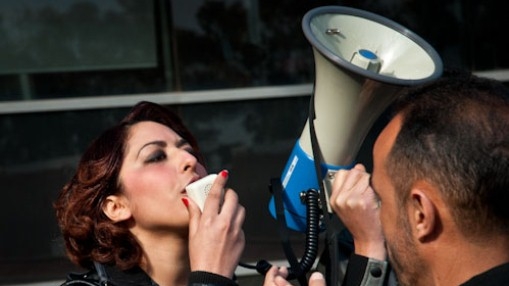You probably haven’t heard Rahma’s story. She has been too busy overcoming long odds to tell it.
It‘s well worth a listen though.
There is a local saying in the part of Yemen where Rahma lives: “To educate a woman is wrong because she has no place but her husband’s home.”
Traditional beliefs about gender roles were like the mountains that surround Rahma’s town, shaping and restricting a woman’s life.
Even learning to read and write would have been an achievement, let alone acquiring the skills to break out of this trap.
But Rahma decided that she could and would do more.
She became the first woman in her town to finish high school. She took a paying job at a private medical clinic. Women certainly worked in her mountainside town, and worked hard, but their work was always unpaid.
Then Rahma left the region for the capital, Sana’a, where she enrolled in healthcare training.
She did look back, though. Like other women in her hometown, Rahma dreamed of marrying and raising a family. She just didn’t think this dream was incompatible with her other talents and ambitions.
So Rahma has since come home and married. She now runs her own business, delivering babies from a special room added to her house. She is viewed with admiration and respect. Better still, many of the girls in her town are reconsidering their prospects and Rahma’s own younger sister is studying at a nearby health institute.

